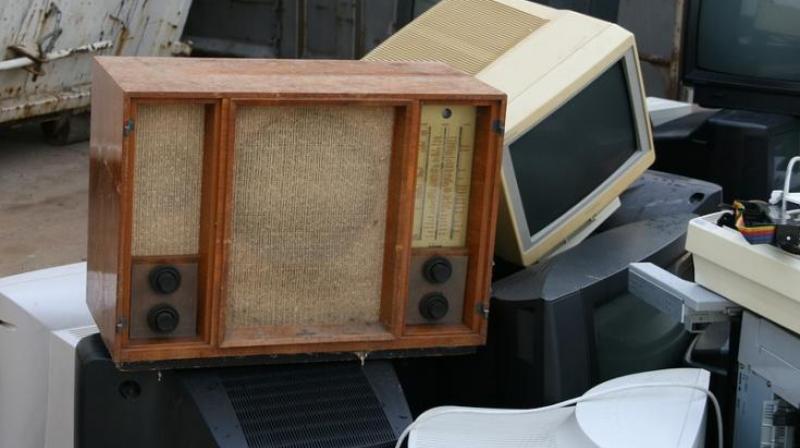E-waste: Onus of disposal may fall on manufacturers

Bengaluru: For Indian families, investments in electronic goods such as TV, fridge, computers are long term investments. Because of prudent and careful management of such expensive gadgets, they last longer than say, in households abroad. In addition, Indian families believe more in repairs than upgrades.
But if we go by an e-waste disposal guide, put out by the Central Pollution Control Board (CPCB), these gadgets have alarmingly short lives. It has set the average life of TVs and washing machines at 9 years and for fridges it is 10 years.
The CPCB calculates the life of computer desktops at 6 years, laptop (5 years), copiers (8 years); while landline telephones at nine years, smart phones (five years), feature phones (seven years) and answering systems (five years).
Air-conditioners, excluding centralized air conditioning plants, are calculated to have a life cycle of 10 years, while fluorescent and other mercury-containing lamps are given a mere two years as life cycle.
The system life calculations are made in order to estimate the e-waste generated every year, and the board has placed on the producers of such goods the onus of declaring the possible e-waste generation each year depending on the life cycle under the e-waste (Management & Handling) rules. The rules are applicable to producer, consumer, retailer, collection centre, and recycler of e-waste.
The main feature, of these rules, is Extended Producer Responsibility (EPR). Target based approach for implementation of EPR has been adopted in the E-Waste (Management) Rules, 2016, which stipulate phase-wise collection target to producers for the collection of e-waste.
Extended Producer Responsibility (EPR) is the responsibility of every producer of electrical and electronic equipment (EEE) for channelisation of e-waste to an authorised dismantler/recycler to ensure environmentally sound management of such waste. EPR authorisation is mandatory and has to be obtained by all the producers including importers, e-retailers/on-line sellers/e-bay etc. of EEE covered in E-Waste (Management) Rules, 2016.
A producer can implement its EPR either through take-back system or by setting up collection centres or both for channelisation of e-waste/end of life products to authorised dismantlers/recyclers. The producers are required to have arrangements with authorised dismantlers/recyclers either individually or collectively or through a Producer Responsibility Organisation (PRO) or E-Waste Exchange system as spelt in their EPR Plan which is approved/authorised by Central Pollution Control Board (CPCB).

